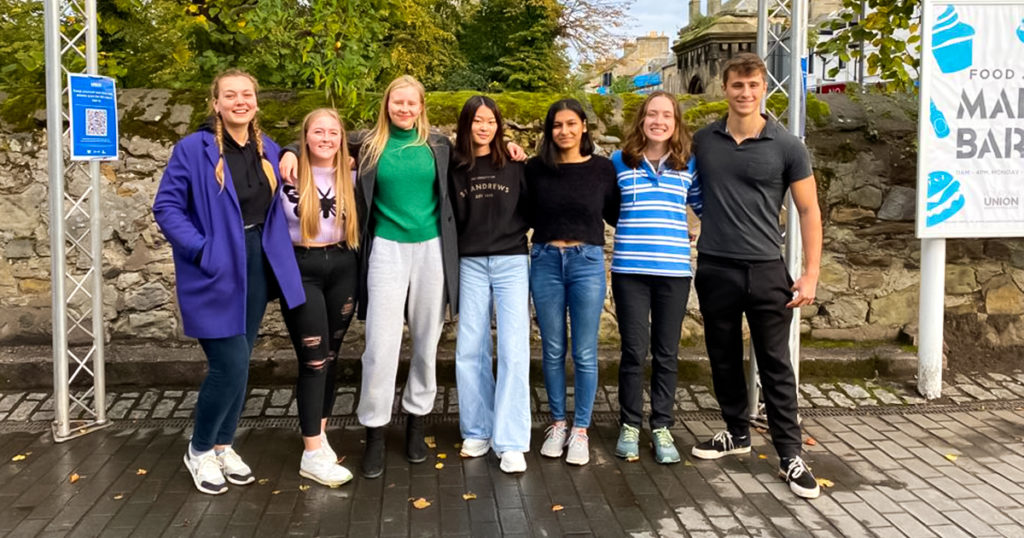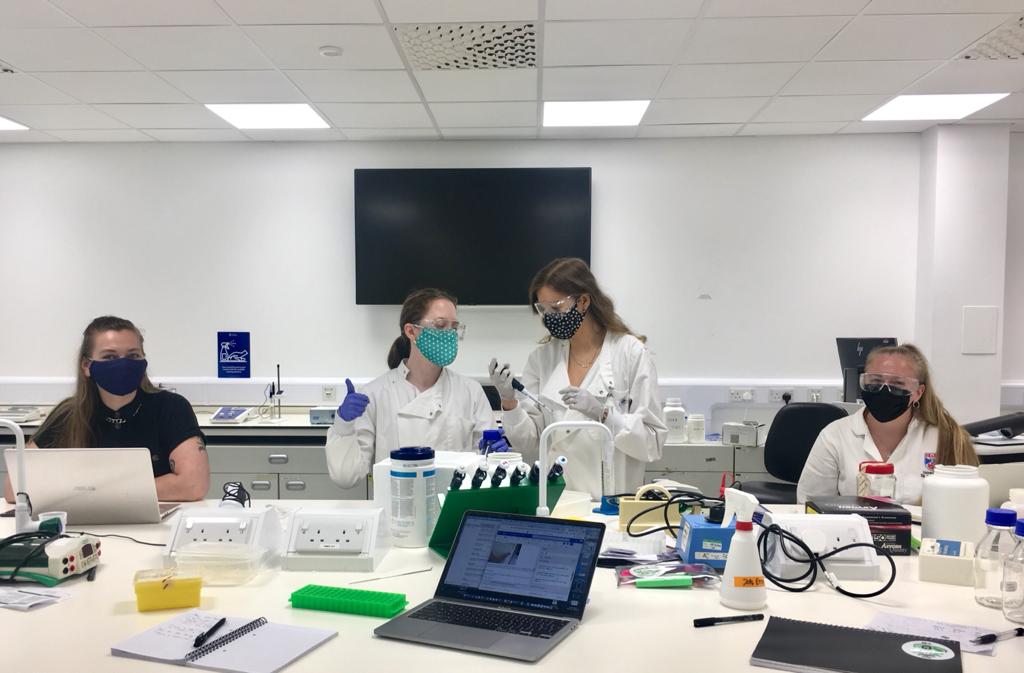Today’s blog was written in collaboration with Julia Ashley and AJ Ridley.
This August marked the end of a frantic 10 weeks of laboratory experiments for Julia Ashley and AJ Ridley. The two are members of the University of St Andrews iGEM team and are working to develop a product called Shinescreen, a probiotic sunscreen that is safe for marine life.
“Experiments were coming along nicely until the last two weeks in the lab. We ran into trouble with some transformation experiments,” said Ridley.
The team was on the clock, with only two and a half months of access to a laboratory. Unfortunately, the team’s time ran out before they could resolve all the issues.
“We learned the realities of science that not everything goes the way you think it will,” said Ashley. “But we got some results, and we’re happy with that.”

The 2021 Shinescreen effort isn’t the first University of St Andrews iGEM team focused on developing a safer sunscreen. The project was first pursued by the University’s 2020 iGEM team, which was unable to work in the laboratory due to closures caused by the COVID-19 pandemic. Instead, the 2020 team’s designs and plans were tested by the 2021 “phase two” team members, who worked to clone the genes responsible for bacterial production of shinogen, the proposed reef-safe active ingredient for Shinescreen. To prevent long term survival of the bacterial component of Shinescreen in the environment, they also developed a kill switch.
Though the team’s time in the lab was limited, they had additional responsibilities that did not require access to agarose gels and pipettes. To raise funding for equipment, reagents and iGEM registration fees, team members searched for and applied to grants starting in March 2021. They won multiple grants, including the Promega iGEM Grant and funding from the Wellcome Trust, Sea-Changers and St Andrews University.
With their funding secure, the team also had to map out how they would complete the iGEM Human Practices requirement. This requirement encourages teams to educate the public about what problem the team is trying to solve and how synthetic biology could help solve this problem.

During a UK iGEM meetup event, the St Andrews team forged separate collaborations with teams from the Manchester Institute of Biotechnology and King’s College London. For their Human Practices program, the Manchester iGEM team produced a podcast about synthetic biology. The St Andrews team recorded an episode about their own project to develop a safer sunscreen for the podcast. Working with the King’s College London team, members of the St Andrews team developed a lecture series about synthetic biology targeted to students aged 16-18.
Closer to home, the St Andrews iGEM team is engaging with multiple groups from their university, including the Vegan Society of St Andrews. Their goal is to spread the word about the environmental impacts of sunscreens on marine environments like coral reefs and how the team is using synthetic biology to create a more environmentally friendly, safer sunscreen alternative.
As Shinescreen phase two is nearing its end, the team is working to wrap up all remaining requirements before the iGEM Giant Jamboree in November. Ashley and Ridley shared that they have enjoyed this experience and are looking forward to sharing the project with the global iGEM community at the Jamboree. They hope that the team has made sufficient progress in phase two and fulfilled enough of the iGEM competition criteria to earn at least one Gold Medal, matching the 2020 Shinescreen team’s performance.
To learn more about the Promega iGEM Grant Award or find resources for iGEM teams, visit our iGEM Resource Center.
Read more about iGEM team projects from previous years.
Latest posts by Promega (see all)
- AI in the Research Lab: Where We Are, and Where We’re Going - April 9, 2024
- Blending Art and Science in a Costa Rica Physics Lab - February 8, 2024
- Elevate Your Research: Exploring the Power of 8-Dye STR Chemistry with the Spectrum Compact CE System - October 25, 2023
